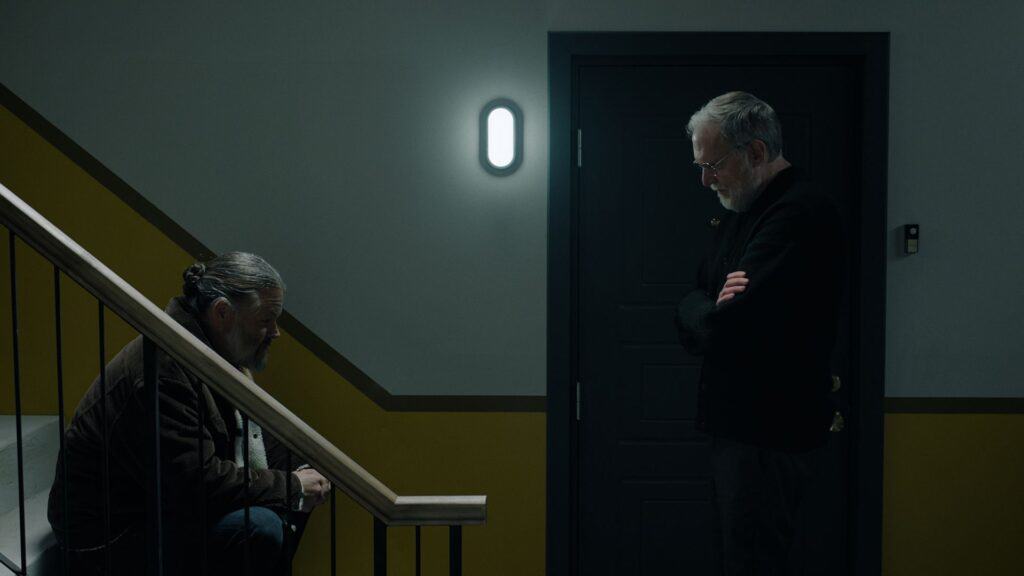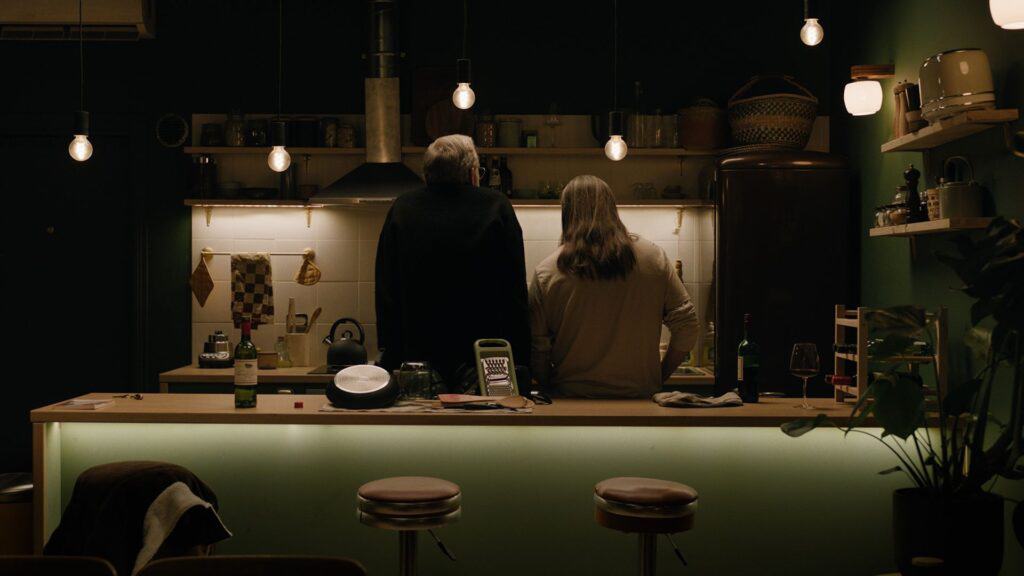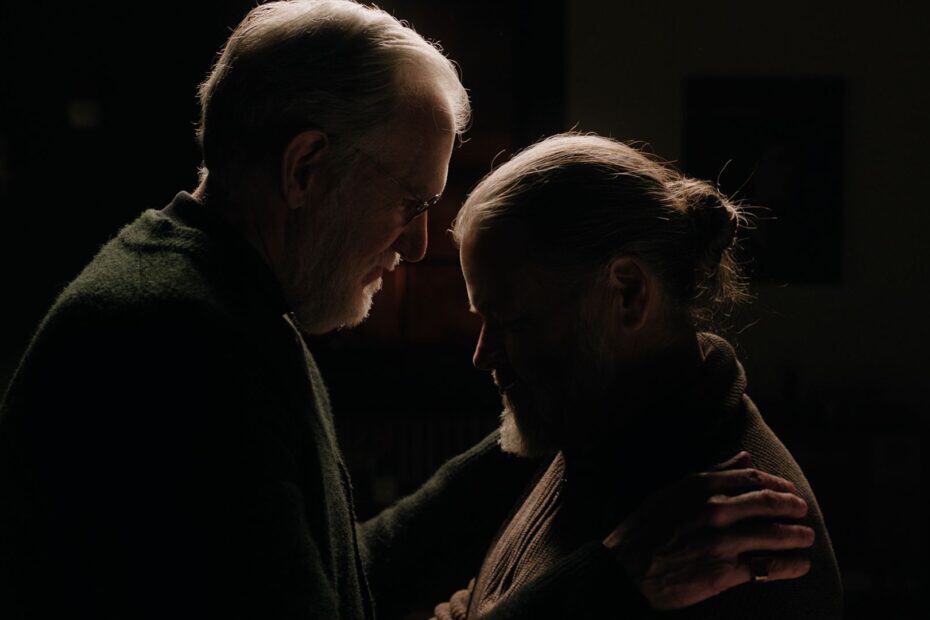The Writer is the fourth feature by Lithuanian director Romas Zabarauskas. Lithuanian-American Kostas (Bruce Ross) and Russian-Lithuanian Dima (Jamie Day) reconnect in New York decades after serving in the Soviet army. They fell in love back in the 80s, and Dima joined Kostas in moving from Russia to Lithuania. But as Lithuania gained Independence in the 90s, Kostas left to study in New York, leaving Dima behind. Now an established author, Kostas has published a book based on their separation. Dima comes to New York, seemingly for a job interview, but also to visit Kostas and challenge some facts in his book. After meeting in a café, they go home to Kostas to make borscht, and a conversation commences.
After three decades, there are plenty of topics to discuss, ranging from politics to personal issues, and more often than not, they intersect via moral quandaries. The first subject matter they talk about is a mutual friend who committed suicide while in the Soviet army in Stavropol. Kostas’ book mentions the case, and Dima says he thinks the book is too lenient towards the parents’ choice not to bring their son home. During this discussion, an interesting discrepancy is displayed between the two. Dima says he “would have gotten the help he needed when Lithuania gained her independence.” Kostas answers that no one knew that Lithuania would get its freedom. The choice of pronouns is no coincidence.

The stylish display of The Writer
There will be more political bickering where Dima refers to himself as a liberal capitalist, which Kostas scoffs at. They are obviously both informed by their different experiences. Initially, they sometimes talk past each other, like when Dima calls Kostas “a typical leftist, only to be surprised moments later when Kostas agrees about how distasteful it is when Western left-wing people flirt with communism. This comes after an argument about who sounds more like a typical leftist and who sounds like a Republican. What’s constantly hanging over the proceedings is guilt in different shapes or forms. As the director said when I interviewed him, The Writer is a film that explores the art of conversation.
The script is credited to four writers, including Zabarauskas with different perspectives. Whether the parley is about politics or homophobia,1Homosexuality was illegal in Lithuania until 1993. it’s constantly engaging and only occasionally falls into soapbox expressions. Kostas’s approach is more academic, focusing on structural changes or the lack thereof, while Dima stresses the importance of personal choice. The director has referred to directors such as Rohmer, Cassavetes or The Dinner of Andre (1981). Yet, another allusion made was Alain Resnais, more precisely, his later, more theatrical pieces like Mélo (1986). Like the French metteur en scène, Zabarauskas stresses the artifice and won’t let us forget that his film was shot in a studio.

The production design is highly accomplished and made me think of Resnais already before I was aware of the director’s reference. There are sudden close-ups of objects that even bring Muriel to mind. The lighting might change in an instant, as in the clip below. The largely unobtrusive camera will sometimes move even if the conversation itself doesn’t require it. In many respects, The Writer is a beautifully conceived work asking questions about what defines us as human beings, whether politically, sexually or nationally. Narvydas Naujalis’ lensing and the music by Ieva Marija Baranauskaitė further add to the pleasure of the film.
The Writer had its world premiere in the Baltic Competition at the Black Nights Film Festival in Tallinn.

